UNIFY Ultra-Premium Nylon MicroSutures, Size 7/0, 18" Thread with 13mm 3/8 Circle Single Spatula Needle. Black. Box of 12.
UNIFY
Write a Review

UNIFY
Ultra-Premium Nylon MicroSutures, Size 7/0, 18" Thread with 13mm 3/8 Circle Single Spatula Needle. Black. Box of 12.
- Item #:
- S-N718SP13
- Thread Size:
- 7/0
- Needle Spec:
- 13mm, Single Spatula
- Comparable Needles:
- TG-140-8
- Thread Length:
- 18 in (45cm)
- Color:
- Black
- Packing:
- Box of 12 Pieces
Ultra-Premium Nylon MicroSutures, Size 7/0, 18" Thread with 13mm 3/8 Circle Single Spatula Needle. Black. Box of 12.
UNIFY® Ultra Premium Nylon Surgical Sutures
- Our finest microsutures for the most delicate procedures
- Made with a reinforced alloy to resist needle bending and distortion during surgery
- Advanced micro taper allows minimal force during tissue penetration
- Commonly used in microsurgeries such as nerve repair or microvascular surgeries
- Minimal tissue reaction.
- Smooth flow through tissue while maintaining optimal knot security.
- Thread type: Monofilament
- Color: Black or Clear (undyed)
- Strength duration: 2 Year
- Absorb duration: N/A


Nylon Thread
Comparable to Ethilon* and Monosof**
- Product Name:
- Ultra-Premium Nylon MicroSutures, Size 7/0, 18" Thread with 13mm 3/8 Circle Single Spatula Needle. Black. Box of 12.
- Item #:
- S-N718SP13
- Brand:
- UNIFY
- Manufacturer:
- Private Label Manufacturing Partners
- Needle Size:
- 13mm
- Needle Curvature:
- 3/8 Circle
- Needle Cutting:
- Single Spatula
- Thread Size:
- 7/0
- Thread Length:
- 18 in (45cm)
- Color:
- Black
- Comparable Needles:
- TG-140-8
- Product Line:
- Microsutures
- Thread Material:
- Nylon
- Packing:
- Box of 12 Pieces
- Absorbability:
- Non-Absorbable
- Strength:
- 2 years
- Thread Type:
- Monofilament
- Synthetic:
- Yes
- Tensile Strength:
- High
- Comparable Material:
- Ethilon / Monosof
- Tissue Reaction:
- Minimal
- Wicking Behavior:
- No
- Shape Memory:
- Low
- Knot Safety:
- Good
- Smooth:
- Good
- Sawing Effect:
- No
- samples:
- yes
Microsutures are very small, thin sutures used in delicate surgical procedures, such as those involving small blood vessels or nerves. Using microsutures requires careful attention to detail and precision to ensure that the sutures are placed correctly and do not damage surrounding tissues.
Here are some general guidelines for using microsutures:
1. Choose the appropriate size and material: Microsutures come in a range of sizes and materials. The size of the suture should be appropriate for the tissue being sutured. The material should be chosen based on the patient's allergies, tissue compatibility, and surgical requirements.
2. Use proper instrumentation: Microsutures require special instruments, including a microsurgical needle holder and forceps. These instruments are designed to provide precise control and prevent damage to surrounding tissues.
3. Ensure proper placement: When placing microsutures, it is important to ensure that they are properly placed to achieve the desired outcome. This requires good visualization and a steady hand.
4. Use a proper technique: Microsutures are typically placed using a “figure-eight” technique, which involves passing the suture through the tissue in a loop and tying it in a knot. This technique helps to ensure that the suture is secure and does not slip.
5. Minimize tissue trauma: When using microsutures, it is important to minimize tissue trauma by handling tissues gently and avoiding excessive tension on the suture. This can help to reduce the risk of complications such as tissue necrosis or scarring.
Overall, using microsutures requires a high level of skill and precision. Surgeons who perform microsurgery should have specialized training and experience in using these techniques.
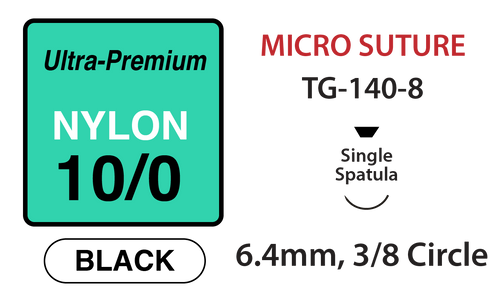

UNIFY Ultra-Premium Nylon MicroSutures, Size 10/0, 7" Thread with 6.4mm 3/8 Circle Single Spatula Needle, Black. Box of 12.


UNIFY Ultra-Premium Nylon MicroSutures, Size 10/0, 12" Thread with 6.4mm 3/8 Circle Double Spatula Needles. Black. Box of 12.


UNIFY Ultra-Premium Nylon MicroSutures, Size 8/0, 7" Thread with 6.4mm 3/8 Circle Taper Point Needle. Black. Box of 12.


UNIFY Ultra-Premium PGA MicroSutures, Size 8/0, 12" Thread with 6.4mm 3/8 Circle Double Spatula Needles, 12". Violet. Box of 12.


UNIFY Ultra-Premium PGA MicroSutures, Size 6/0, 12" Thread with 6.4mm 3/8 Circle Double Spatula Needles, 12". Violet. Box of 12.


MERITPOINT Sterile Blunt Fill Needles

MERITPOINT Micro Syringes with Ultra-Fine Needle


B.BRAUN Luer-to-Luer Fluid Dispensing Connectors

MEDIGRATIVE Sterile Luer Lock Syringe Tip Caps


KBMED Safety Blood Collection Sets (without holder)


UNIFY Premium+ Fast Absorbing Gut Surgical Sutures, Size 6/0, 18" Thread with 13mm 3/8 Circle R/C Needle. Beige. Box of 12.


UNIFY Chromic Gut Surgical Sutures, Size 6/0, 18" Thread with 13mm 3/8 Circle R/C Needle. Brown. Box of 12.


UNIFY Chromic Gut Surgical Sutures, Size 5/0, 18" Thread with 13mm 3/8 Circle R/C Needle. Brown. Box of 12.


UNIFY Chromic Gut Surgical Sutures, Size 4/0, 18" Thread with 13mm 3/8 Circle R/C Needle. Brown. Box of 12.


UNIFY Nylon Surgical Sutures, Size 4/0, 18" Thread with 19mm 3/8 Circle R/C Needle. Black. Box of 12.


UNIFY Premium+ Plain Gut Surgical Sutures, Size 5/0, 18" Thread with 13mm 3/8 Circle R/C Needle. Beige. Box of 12.
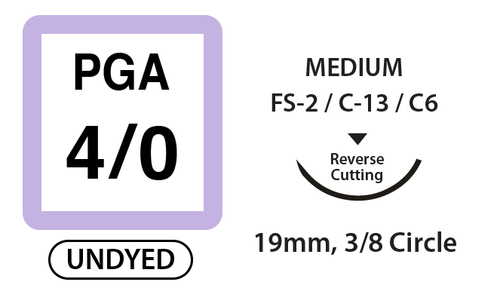

UNIFY PGA Surgical Sutures, Size 4/0, 18" Thread with 19mm 3/8 Circle R/C Needle. Undyed. Box of 12.
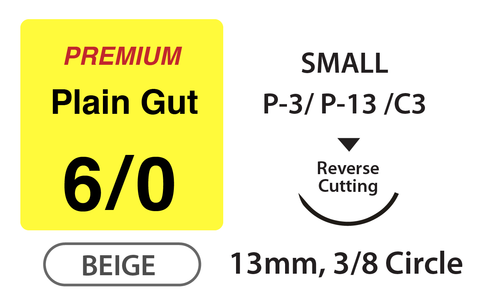
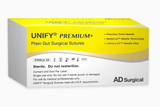
UNIFY Premium+ Plain Gut Surgical Sutures, Size 6/0, 18" Thread with 13mm 3/8 Circle R/C Needle. Beige. Box of 12.


UNIFY Nylon Surgical Sutures, Size 5/0, 18" Thread with 13mm 3/8 Circle R/C Needle. Black. Box of 12.


UNIFY Polypropylene Surgical Sutures, Size 6/0, 18" Thread with 13mm 3/8 Circle R/C Needle. Blue. Box of 12.


UNIFY Polypropylene Surgical Sutures, Size 4/0, 18" Thread with 19mm 3/8 Circle R/C Needle. Blue. Box of 12.


UNIFY PGA Surgical Sutures, Size 5/0. 18" Thread with 13mm 3/8 Circle R/C Needle. Undyed. Box of 12.


UNIFY PGA Surgical Sutures, Size 3/0, 18" Thread with 19mm 3/8 Circle R/C Needle. Violet. Box of 12.


UNIFY Polypropylene Surgical Sutures, Size 5/0, 18" Thread with 13mm 3/8 Circle R/C Needle. Blue. Box of 12.

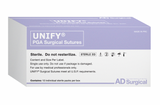
UNIFY PGA Surgical Sutures, Size 3/0, 18" Thread with 19mm 3/8 Circle R/C Needle. Undyed. Box of 12.


UNIFY PGCL Surgical Sutures, Size 5/0, 18" Thread with 13mm 3/8 Circle R/C Needle. Undyed. Box of 12.


UNIFY PGCL Surgical Sutures, Size 4/0, 18" Thread with 13mm 3/8 Circle R/C Needle. Undyed. Box of 12.
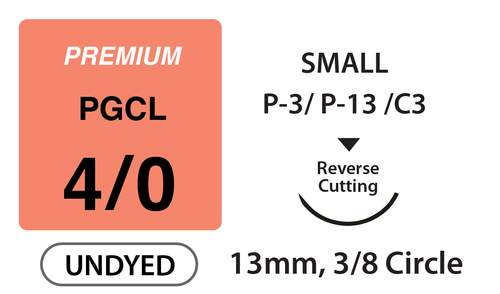

UNIFY Premium+ PGCL Surgical Sutures, Size 4/0, 18" Thread with 13mm 3/8 Circle R/C Needle. Undyed. Box of 12.
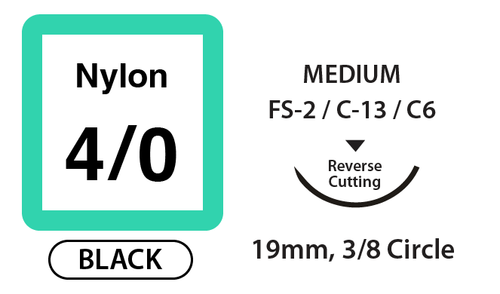
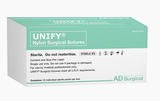
UNIFY Nylon Surgical Sutures, Size 4/0, 10" Thread with 19mm 3/8 Circle R/C Needle. Black. Box of 12.
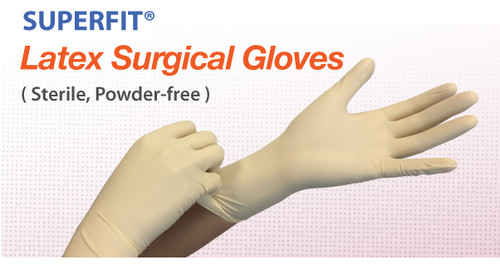

SUPERFIT Sterile Latex Surgical Gloves


UNIFY PGCL Surgical Sutures, Size 4/0, 18" Thread with 19mm 3/8 Circle R/C Needle. Violet. Box of 12.

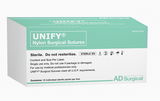
UNIFY Nylon Surgical Sutures, Size 3/0, 18" Thread with 19mm 3/8 Circle R/C Needle. Black. Box of 12.


UNIFY Premium+ Nylon Surgical Sutures, Size 4/0, 18" Thread with 19mm 3/8 Circle R/C Needle. Black. Box of 12.


AD SURGICAL Universal Sterile Surgical Drapes

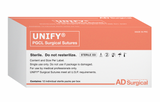
UNIFY PGCL Surgical Sutures, Size 4/0, 18" Thread with 19mm 3/8 Circle R/C Needle. Undyed. Box of 12.


UNIFY Premium+ Fast Absorbing Gut Surgical Sutures, Size 5/0, 18" Thread with 13mm 3/8 Circle R/C Needle. Beige. Box of 12.


UNIFY PREMIUM+ PDO Surgical Sutures, Size 3/0, 18" Thread with 19mm 3/8 Circle R/C Needle. Violet. Box of 12.


UNIFY Nylon Surgical Sutures, Size 6/0, 18" Thread with 13mm 3/8 Circle R/C Needle. Black. Box of 12.


UNIFY Premium+ Chromic Gut Surgical Sutures, Size 5/0, 18" Thread with 13mm 3/8 Circle R/C Needle. Brown. Box of 12.
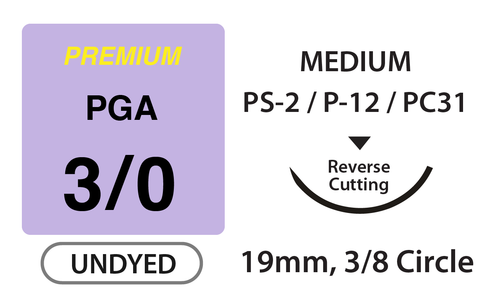

UNIFY Premium+ PGA Surgical Sutures, Size 3/0, 18" Thread with 19mm 3/8 Circle R/C Needle. Undyed. Box of 12.


UNIFY PGCL Surgical Sutures, Size 3/0, 18" Thread with 19mm 3/8 Circle R/C Needle. Undyed. Box of 12.


UNIFY PGA Surgical Sutures, Size 4/0, 18" Thread with 13mm 3/8 Circle R/C Needle. Undyed. Box of 12.
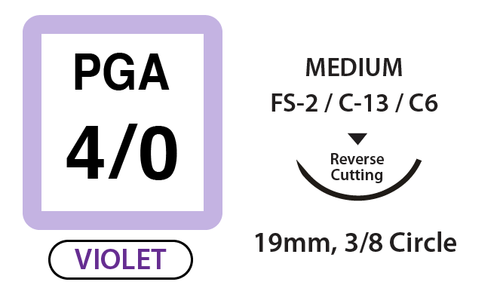
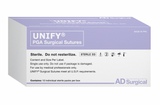
UNIFY PGA Surgical Sutures,Size 4/0, 18" Thread with 19mm 3/8 Circle R/C Needle. Violet. Box of 12.


UNIFY Nylon Surgical Sutures, Size 4/0, 18" Thread with 13mm 3/8 Circle R/C Needle. Black. Box of 12.
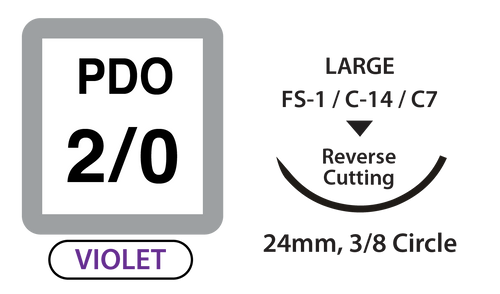

UNIFY PDO Surgical Sutures, Size 2/0, 30" Thread with 24mm 3/8 Circle R/C Needle. Violet. Box of 12.











